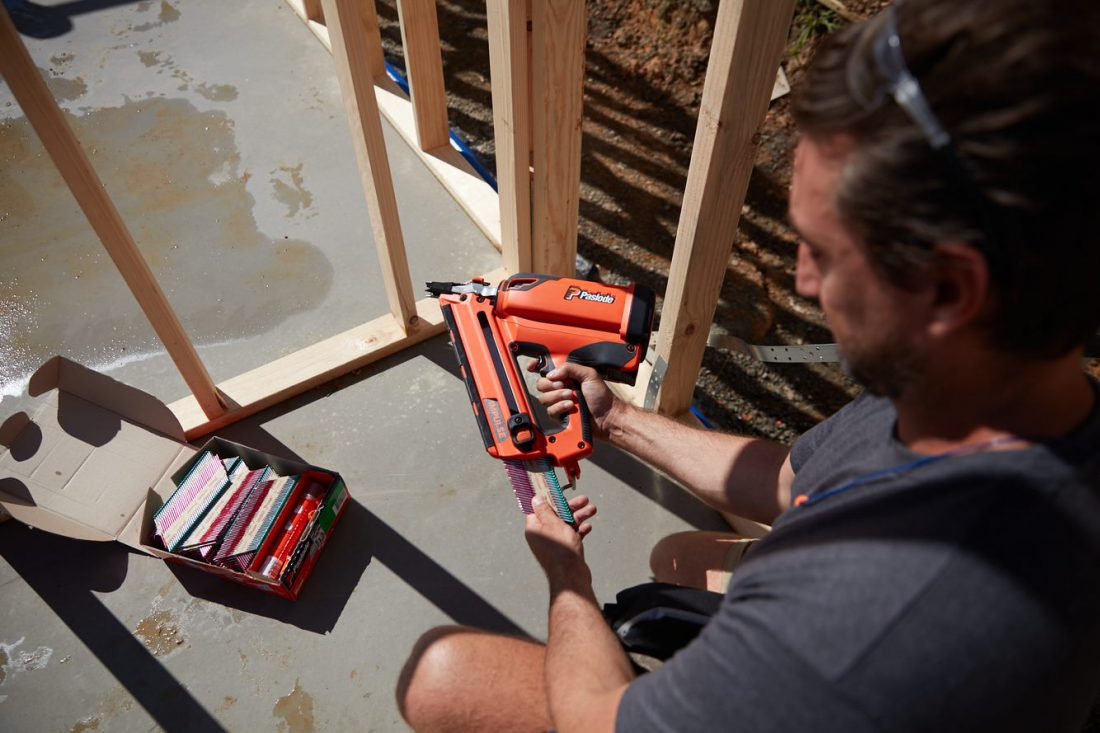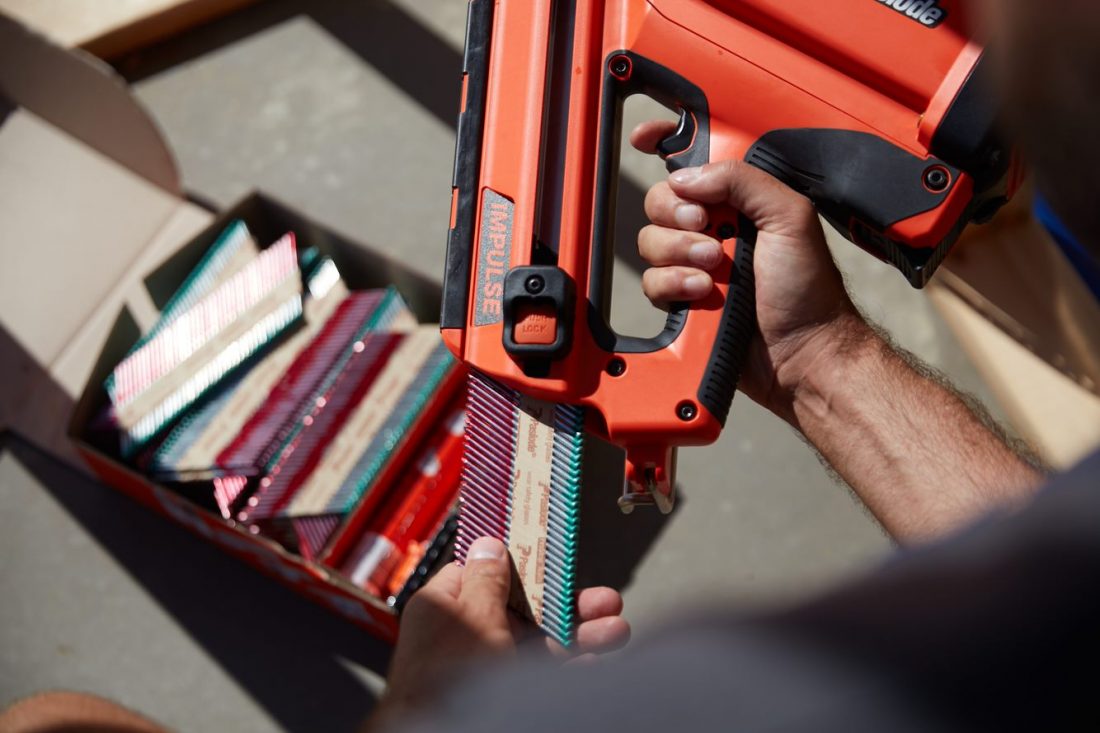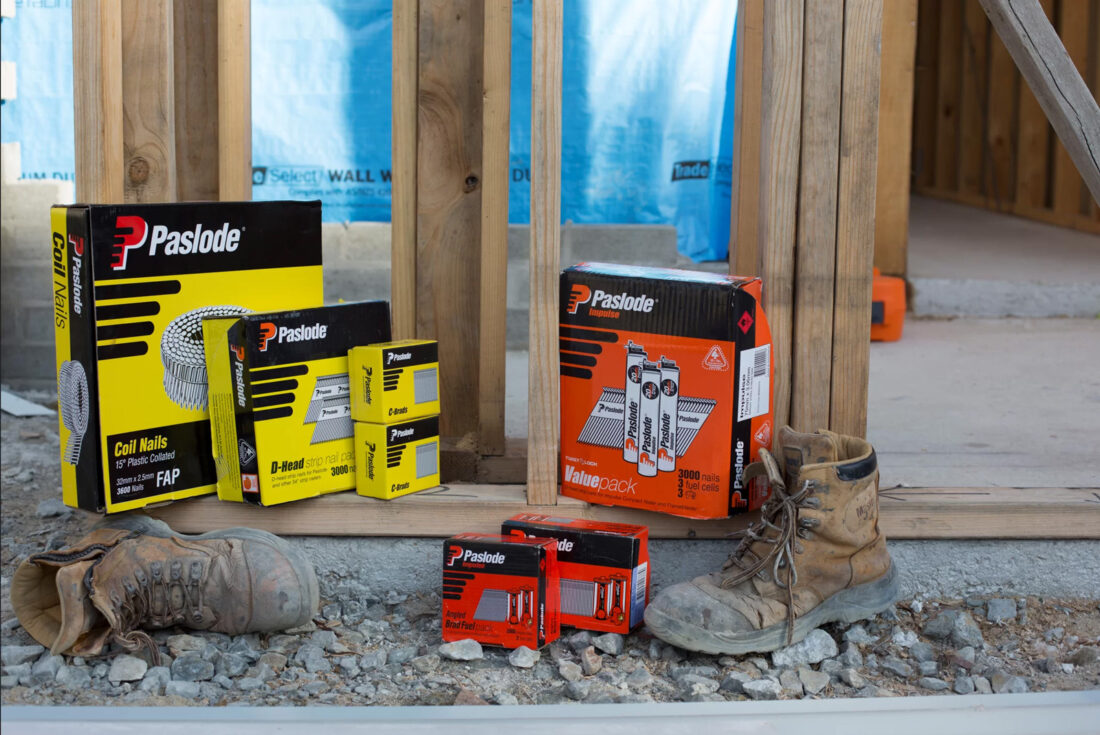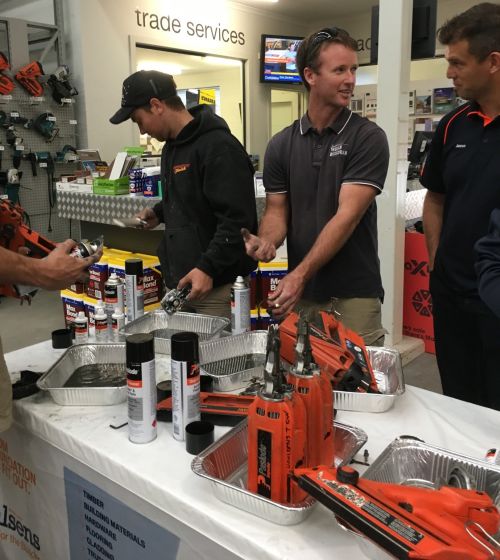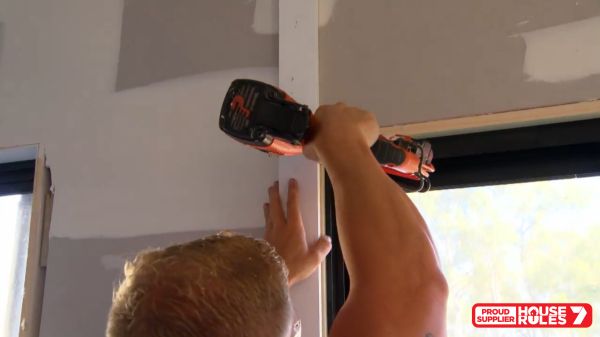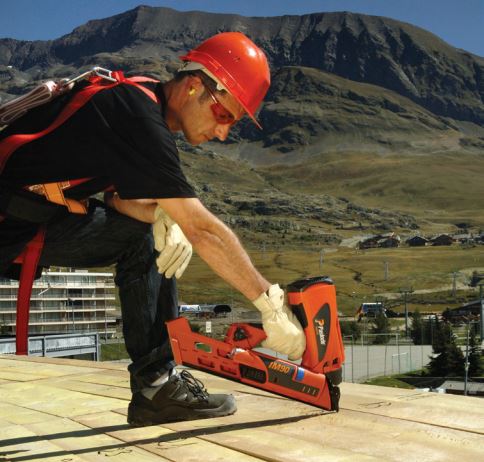With hundreds of different types of fasteners on the market it can be challenging to know what to look for. Here’s a complete guide on what to look for to help you with a job well done.
Tried and tested
As a general rule, the best place to start is to look for those fasteners that have actually been designed and tested for the local market. Says Stephen Hannan, Paslode’s Technical Specialist: “Our fasteners meet and exceed both Australian and New Zealand safety and building standards as well as our own rigorous testing.” It’s those tailored details that ensure quality and a job done to local standard.
Consider your applications
The next consideration is what fastener you need for a high-quality job. Most builders already understand what types of nails are best for different tasks, but when working with different brands of cladding for example, the specified nails can vary across the different suppliers, so it’s worth doing a bit of research to be sure the fasteners you have are fit for purpose. Pairing the right fasteners with the right guns ensures consistent depth of drive, regardless of density. We work closely with our partners to be sure that our fastener specifications are suitable for their materials. Check out our Partner Fixing Matrix for details of construction materials and suitable fastener pairings.
Cheapest isn’t always best
Not all fasteners are created equal, and usually a brand manufactures nails, brads and staples to work best with their own tools. “Our resin that coats the ends of our fasteners is specially formulated to help them fire more smoothly through our tools,” explains Steven. “And the tape that holds the strip together is flexible to allow more accurate firing through the tool.”
Opting for cheaper, resin-coated nails doesn’t necessarily guarantee the same result; the resin may not heat up as smoothly upon firing and clog your tool, causing costly damage in the end. Further to this, different tape may not help other nails move as smoothly through a Paslode tool, which may cause them to fire at odd angles and compromise the end result.
Final factors to note about fasteners
Other things to consider include head types, whether a hidden fix is necessary, and how much pull-through resistance you need. Another common question is whether to opt for galvanised or non-galvanised fasteners. Galvanising extends the life of the fastener, but while fasteners may say ‘galvanised’ on the packaging, they may not be code compliant. In NZ and Australia, compliant galvanised nails should meet a 50-year durability standard. The best way to determine if the fastener meets strict standards is to check the manufacturer’s site to find out about testing and QC systems. In NZ our framing nails have full BRANZ Appraisal to assure compliance.
At the end of the day, which fastener you choose comes down to the job at hand and the finish you’re after. Quality locally made fasteners will ensure your job is up to building code and will hold true for decades to come.
Check out Paslode’s range of quality and code-compliant nails, brads and staples here.
